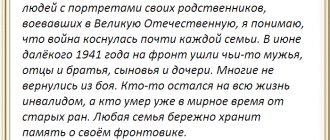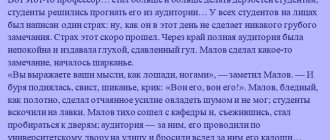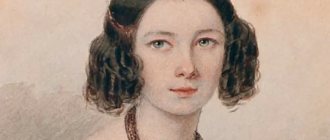Mikhail Yuryevich Lermontov was born on October 3, 1814 into a noble family. And although the Lermontov family were not native Muscovites, the young father Yuri Petrovich Lermontov was worried about the health of his sick wife and brought her to Moscow, where there were professional doctors. The family lived in the capital until April of the following year, and returned to Tarkhany only when it became warmer.
Childhood in Tarkhany
The Lermontovs lived in Tarkhany, on the estate of Mikhail Yuryevich’s grandmother, Elizaveta Alekseevna. At first, the young people loved each other. But Maria Mikhailovna’s illness led to her husband losing interest in her. Quarrels began between the spouses.
But it was not the conflicts that remained in Michel’s childhood memory. He often remembered his mother’s song, which she sang while sitting at the piano and holding it on her lap. Little Misha was not three years old when his mother, Maria Mikhailovna, died. For a grandmother who lost her only daughter, Michel became the only meaning of life. She exerted all her power, all her influence, to leave Mishenka and Tarkhanakh, to prevent his father from taking him away.
Yuri Petrovich understood that he was unable to provide Michel with a comfortable existence, and resignedly retreated before the imperious Elizaveta Alekseevna.
Michel was a sickly child, so the grandmother kept a doctor on the estate who was obliged to deal only with the health of her grandson. And although the children of the courtyard peasants played with the barchuk and entertained him, Misha Lermontov lived in a world of his own invention.
Brief biography of Lermonov
Mikhail Lermontov was a Russian romantic writer, poet and painter, sometimes called the "poet of the Caucasus".
Lermontov was born in Moscow into a respectable family. His paternal family descended from the Scottish Learmont family and can be traced back to Yuri Learmonth, a Scottish officer in the Polish-Lithuanian service. Lermontov's father married Maria Arsenyeva. On October 15, 1814, in Moscow, where the family temporarily moved, Maria gave birth to a son, Mikhail.
The marriage was unsuccessful, and the couple soon separated. The exact reasons for the divorce are still unknown. Viskovatov's biographer suggested that the discord could have been caused by Yuri's relationship with a young lodger who worked in the house.
Elizaveta Arsenyeva began a formidable battle for her beloved grandson, promising to deprive him of his inheritance if his father took the boy with him to Kropotovo. The parties decided that the boy should remain with his grandmother until he was 16 years old.
In 1817, Elizaveta Alekseevna transferred her grandson to Penza. In 1821 they returned to Tarkhany. The satisfied grandmother spared no expense to provide young Lermontov with a better education and lifestyle. Living with his grandmother, Mikhail almost never met his father.
The intellectual atmosphere in which Lermontov grew up was reminiscent of the one in which Alexander Pushkin grew up.
In February 1829, thirteen-year-old Lermontov passed the exams and entered the 5th grade of a boarding school for noble children. The short poem "Spring", published in 1830 by the amateur magazine Athenaeum, marked its unofficial debut issue.
At the boarding school, Lermontov turned out to be an exceptional student. He excelled in the 1828 examinations; he read a poem by Zhukovsky, performed a violin etude and received first prize for his literary essay.
In 1830, Lermontov entered the philological faculty of Moscow University. “Petty arrogance” (as Skabichevsky says) prevented him from joining any of the three circles of radical students. “Everyone saw that Lermontov was disgusting, rude and impudent, and yet there was something tempting in his firm grief,” admitted fellow student Wistenhoff.
Lermontov took an active part in the notorious scandal in Malovo in 1831 (when he pushed an unpopular professor out of the auditorium from the crowd), but was not formally reprimanded. Yuri Lermontov left Arsenyeva’s house forever and died some time later. For some time, Mikhail seriously thought about suicide.
During his second year of study, Lermontov began to have serious clashes with several of his professors. He decided to leave, and in 1832 he received a two-year diploma.
This is the favorite author of many modern readers.
5th grade
Biography by dates and interesting facts. The most important.
Caucasus. First love
At the age of 10, Mishenka’s grandmother took Mishenka to the Caucasus for mineral waters, in the hope that the springs would save her beloved grandson from the disease, or at least weaken it. The sensitive, receptive child was impressed by the nature of the Caucasus.
New people, incredibly beautiful nature, an abundance of emotions had a strange effect on the boy. He fell in love with a neighbor girl at an early age.
And although her childhood image lived in his soul for a long time, when he met her 17 years later, Mikhail Yuryevich did not recognize Verzilin’s stepdaughter Emilia, that little beauty. By the will of fate, it was she who ended up next to Lermontov when a quarrel broke out between Lermontov and Martynov.
Years of study
Upon returning from the Caucasus, Elizaveta Alekseevna hired teachers for Michel. The choice was extremely unfortunate. The Greek did not work with the boy at all, and the Frenchman failed to instill in the child a love of French. There was a large library on his grandmother’s estate, and Mikhail Yuryevich was engaged in self-education, reading everything. Along with French, he studied German and English, and read European authors in the original.
In 1829, Elizaveta Alekseevna took her grandson to Moscow to enter the university noble boarding school. Upon graduation, Mikhail Yuryevich entered Moscow University. But my studies in Moscow did not go well. At first, classes were not held due to quarantine due to cholera, then because of the so-called “Malovsky story,” when students rebelled. This was the first student revolt in Russia. Many memoirs have been preserved about him. This is what the famous democratic writer Alexander Ivanovich Herzen wrote.
Everyone understood that this rebellion could not end well. The initiators of the rebellion could end up being recruited as soldiers, despite the noble origin of most of them.
Lermontov wrote poems on this occasion, which were preserved in the album of his fellow student Nikolai Ivanovich Polivanov. Lermontov lived in the same apartment with this student in Moscow. Subsequently, they will go to study together at the Guards School of Junkers.
The university authorities also understood that they would not be patted on the back for this rebellion. Therefore, we decided not to wash dirty linen in public. Malov was quietly fired, the instigators of the riot were put in a punishment cell, and the participants, including Lermontov, were sent on “vacation.”
A year later, the quarrelsome student transferred to the verbal department, but even here he could not find a common language with the teachers. Lermontov was smart and well-read, but he openly floundered in the academic “lecture” material. He quarreled with rhetoric teachers P.V. Pobedonostsev, as well as heraldry and numismatics M.S. Gastev, and submitted his resignation. A failed student, Lermontov went to St. Petersburg, hoping to transfer to the capital's university. But here he was offered to enroll again as a first-year student. The prospect of being an “eternal student” did not inspire him. After a conversation with the selection committee, he wandered around St. Petersburg for a long time, and as history shows, it was then that he composed one of the best poetic works - the poem “Sail”. We all remember its opening lines:
The lonely sail is white in the fog of the blue sea!.. What is he looking for in a distant land? What did he throw in his native land?
Life and work of M.Yu. Lermontov presentation for the lesson (grade 4) on the topic
Slide 1
Life and work of M.Yu Lermontov 1814-1841
Slide 2
Lermontov's mother, Maria Mikhailovna, a romantic and sickly nature, studied at the Institute for Noble Maidens; father is a 27-year-old retired captain from a “seedy” noble family. Mary's mother was against the marriage. They overcame their mother's resistance. This struggle undermined Maria Mikhailovna’s health and, when her son was 3 years old, she died.
Slide 3
My grandmother, E.A. Arsenyeva, took up the upbringing; she was a very domineering and strict person. The father wanted to take his son away. But she convinced him not to do this by drawing up a will, according to which her entire fortune was to go to her grandson, but with the obligatory condition that the grandson would live with her until he came of age.
Slide 4
Tarkhany...Half of the poet’s life was spent on this estate. After the death of her daughter, Elizaveta Arsentievna ordered the house to be burned, and in its place she built a new one, where, in her opinion, there should be happiness.
Slide 5
In Tarkhany, Mikhail lived like a rich barchuk, he had several rooms, his grandmother did everything so that he could study and develop physically.
Slide 7
The grandmother constantly took her grandson to Pyatigorsk for treatment. The Caucasian nature amazed the boy. He saw snowy mountain peaks, sulfur springs flowing on Mashuk, steppe for dozens of miles, stormy and fast rivers.
Slide 8
On September 1, 1827, thirteen-year-old Lermontov was enrolled in the fourth class of the Moscow Noble Boarding School. That same fall, he enthusiastically wrote poetry. He creates more than 50 poems, is engaged in translations. Lermontov studied brilliantly, distinguished himself not only in the humanities, literature and arts (he drew, played the violin) but also in mathematics. 1830...Lermontov is a student at Moscow University. But my studies at the university did not work out. He was not satisfied with the teachers, and in 1823 he was dismissed at his own request. From memories
Slide 9
After the death of A. Pushkin, Lermontov wrote the poem “On the Death of a Poet.” After being under arrest for several days, he was sent to a dragoon regiment, which was located in the Caucasus, where there was a war with the highlanders.
Slide 11
SAIL The lonely sail turns white In the blue fog of the sea!.. What is he looking for in a distant land? What did he throw in his native land?.. The waves play - the wind whistles, And the mast bends and creaks... Alas! He is not looking for happiness And he is not running from happiness! Below him is a stream of lighter azure, Above him is a golden ray of sun... And he, rebellious, asks for the storm, As if there is peace in the storms
Slide 12
For his freedom-loving, rebellious poems, for his harsh character, M.Yu. Lermontov was disliked in society. Around him, especially in the last year of his life, the noose of vile and terrible intrigues tightened ever tighter. The foot of Mount Mashuk keeps a terrible secret: in heavy rain, a duel took place between Martynov and Lermontov. The great poet was killed. And he did not even shoot, raising the muzzle of the pistol upward, thereby showing that he did not intend to shoot. “That’s where he belongs,” said the emperor upon learning of the poet’s death.
Slide 13
Elbrus was white in the distance. The body of the great Russian poet was accepted by the rocky Mashuk, the slopes of which he once climbed as a boy... But this grave turned out to be temporary: the grandmother obtained permission to transport the ashes of her grandson to Tarkhany. The coffin is installed in the family crypt.
Slide 14
Lermontov lived such a short life that one cannot help but be amazed by the facts that he managed to create a huge literary world and become the greatest Russian poet, equal to Pushkin. Lermontov's fame has its own characteristics. Both his poetry and his prose, first of all, put the reader in front of himself, forcing him to think about himself, about his place in society, in the world. It ignites the soul with a desire for goodness, beauty, for life, for the ability to withstand the storms of life.
Military path. Links to the Caucasus
On the advice of his close relative and friend Alexei Arkadyevich Stolypin (Mongo), he submitted an application to the School of Guards Ensigns and Cavalry Junkers. The study took two “ill-fated years.” The graduates were trained to be soldiers ready to carry out orders. Reading any literature was not encouraged at school. While studying at school, Lermontov began the novel “Vadim” about the history of the Pugachev movement.
After graduating from school in 1834, Mikhail Yuryevich was released as a cornet in the Life Guards Hussar Regiment.
In January 1837, Lermontov learned about Pushkin's duel. He wrote his poem “On the Death of a Poet” right away, not knowing that Alexander Sergeevich was still alive. But Pushkin lived no more than 3 days after the duel, and really died when the poem fell into the hands of readers. Lermontov showed his poem to his friend S. Raevsky. He, delighted with the angry and truthful lines, asked permission to copy the poem. Lermontov had no idea that Raevsky would show the poem to his friends, and how it would turn out for him. All educated Petersburg copied the poem from each other. In just a few days, several thousand lists of this work were created. Eventually it fell into the hands of Benckendorff and the Emperor. The punishment followed immediately. The grandmother’s influential connections did not help, nor did the intercession of literary friends, including Zhukovsky. Lermontov was sent into exile in the Caucasus. This poem brought fame and glory to the poet. Returning from exile. He brought many romantic works, which are beginning to be published in Otechestvennye zapiski and other publications in St. Petersburg.
Lermontov received his second exile in 1840 for a duel with the son of the French ambassador, Ernest Barant. And although both were to blame for the quarrel, only Lermontov was punished, allegedly for failing to report the duel. But in fact, the obstinate poet and writer was disliked by the imperial family.
During this exile, Lermontov took part in complex and serious military operations, in which he showed his courage. But he was not promoted; he was given awards for his quarrelsomeness and obstinacy.
Education and student years
In 1828-1830 he studied at a university boarding school in Moscow, where his first poems were written.
In 1830-1832 the poet was a student at Moscow University. It is difficult to describe all his hobbies in a short biography of Lermontov.
It is enough just to mention that he had a lively and independent character, and was engrossed in the works of Friedrich Schiller, William Shakespeare and George Byron.
By the way, Lermontov studied English on his own in order to read his beloved Byron in the original.
However, Lermontov's biography took an unconventional path.
Soon, after a collision with the reactionary professors, Mikhail Yuryevich was forced to leave the university and enter the St. Petersburg School of Guards Ensigns and Cavalry Junkers. In 1834, after graduating from school, he was appointed to the Life Guards Hussar Regiment.
Duel and death of the poet
Lermontov wanted to resign in order to quietly engage in literary work. There were many plans in my head. But he was stubbornly refused to resign. The authorities were afraid of the poet, and in the depths of their souls they dreamed that the rebellious mountaineers would shoot him.
Such a chance presented itself. It was not the mountaineers who killed the last romantic of Russian literature. During a party at the Verzilins' house in Pyatigorsk, Lermontov infuriated his colleague and friend Martynov with his ridicule, and he challenged him to a duel. By Martynov’s own admission, he shot almost without aiming. Lermontov, according to the testimony of his seconds, even raised the pistol up and fired into the air.
The poet was first buried at the Pyatigorsk cemetery. Then, grandmother Elizaveta Alekseevna spent a lot of effort so that she was allowed to transport her grandson to Tarkhany. Having received the emperor's highest permission, she immediately sent her people to Pyatigorsk. On April 21, 1842, the coffin with Lermontov’s ashes arrived at the family estate and was laid out for farewell, and two days later Lermontov was buried next to his mother and grandfather.
Report "Mikhail Yurievich Lermontov"
Mikhail Yurjevich Lermontov.
Comparing the work of Mikhail Lermontov with the number of years he has lived, it becomes clear that he is a genius. At the age of 10 he wrote plays for the home theater, drew beautifully, at the age of 15 he wrote the first edition of the poem “Demon”, at 20 he wrote the verse drama “Masquerade”, at 24 he wrote the novel “A Hero of Our Time”. And at the age of 26, Lermontov died.
Childhood and youth.
The poet Mikhail Yuryevich Lermontov was born on the night of October 15, 1814 in Moscow. Lermontov's mother's name was Maria; she died of consumption when Misha was 2 years old. My grandmother took up Misha's upbringing. She adored her grandson and spared no expense on his education and health. Mikhail Lermontov grew up as a sickly boy, and his grandmother hired a French doctor for her grandson. The poet’s grandmother Elizaveta Alekseevna Arsenyeva is a noblewoman from the noble Stolypin family. Minister Pyotr Stolypin is the poet’s second cousin.
Parents of Mikhail Lermontov. Elizaveta Arsenyeva,
grandmother of Mikhail Lermontov
The poet's childhood and teenage years were spent on the Tarkhany estate in the Penza province. Elizaveta Alekseevna hired teachers for his education.
The Tarkhany estate in the Penza province
Mikhail Lermontov grew up watching village life on his family estate and listening to folk songs from the peasants.
A trip with his grandmother to the Caucasus left a deep imprint on the life of Mikhail Lermontov.
Mikhail Lermontov in childhood
Poetry
In September 1828, Mikhail Lermontov was enrolled in the 4th grade of the capital's university boarding school. In December, the boy was transferred to the fifth grade, given a painting and a book for his diligence. From that moment Lermontov's creative path began. At the boarding school, he compiled handwritten journals.
University of Moscow
In the fall of 1830, Mikhail Lermontov entered Moscow University. After studying at the university, he spent two years at the School of Guards Ensigns in St. Petersburg.
In 1835, the poet’s works first appeared in print; Mikhail Lermontov’s poems were readily published. But for his bold views in some poems, Lermontov was sent to serve in the Caucasus. He fought bravely and showed courage in battles.
The winter of 1840–1841 turned out to be Lermontov's last. He came to St. Petersburg on vacation, dreaming of retirement and literary work. The grandmother, who dreamed of a military career for her grandson and did not share his passion for literature, dissuaded Mikhail from submitting his resignation. Lermontov returned to the Caucasus with an anxious heart.
In Pyatigorsk, Mikhail Lermontov had a fatal quarrel with retired major Nikolai Martynov, whom he met in Moscow and even visited his parents’ house. Martynov later said that in Pyatigorsk Lermontov did not miss a single opportunity to make barbs at him.
The duel took place on July 27, 1841. The opponents agreed to shoot until the end. Mikhail Lermontov shot upward, and Martynov - at point-blank range, into the enemy’s chest, killing him outright. A thunderstorm and heavy rain prevented the doctor from arriving at the scene, and the murdered poet lay on the ground for a long time.
Duel between Mikhail Lermontov and Nikolai Martynov
Lermontov was buried on July 29, 1841 at the old cemetery in Pyatigorsk. But after 250 days, Mikhail Yuryevich’s grandmother obtained permission from the emperor to transport the body to Tarkhany.
In April 1842, the body was buried in the family chapel-tomb, next to his grandfather and mother.
Streets, squares, and libraries in Russia and other countries bear the name of Mikhail Yuryevich. Many monuments have been erected in his memory.








